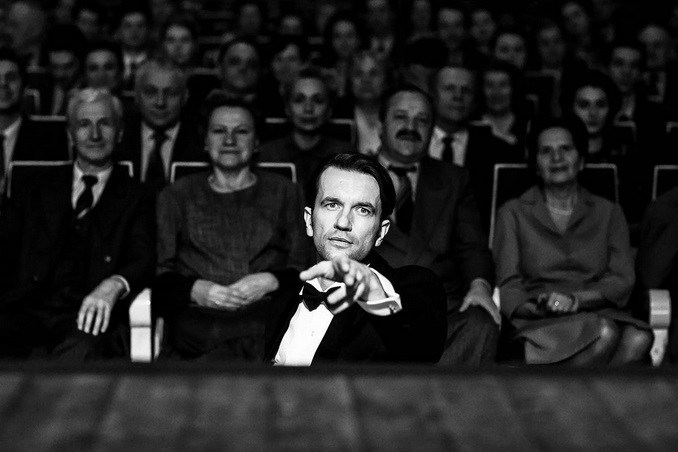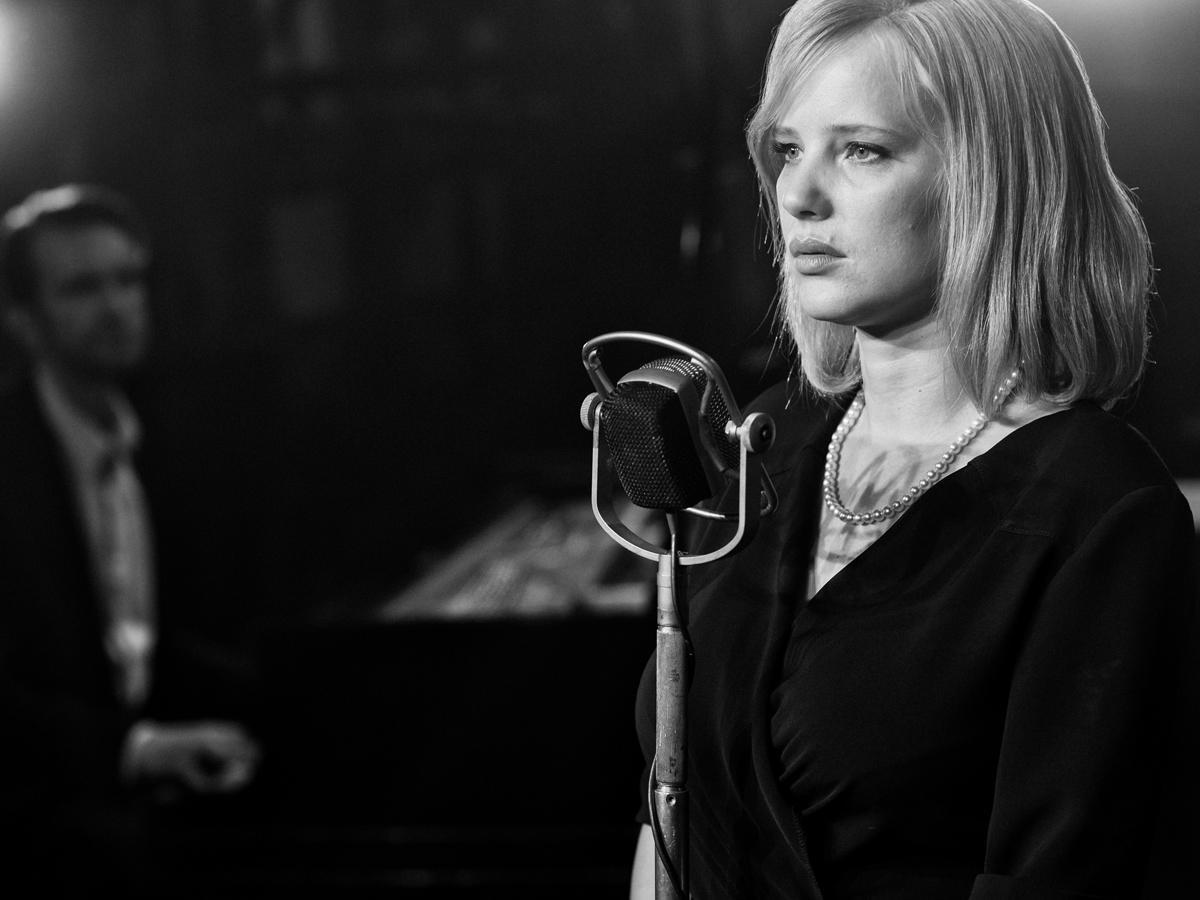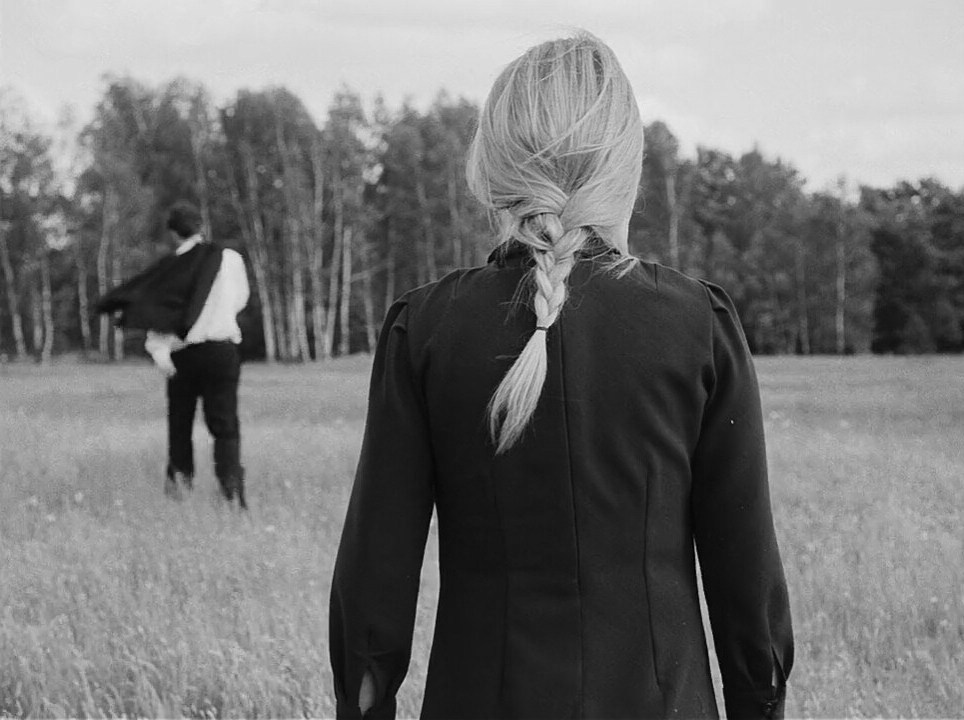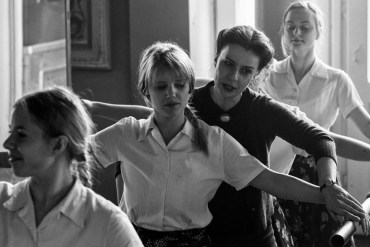The human voice possesses a unique level of influence. Many of us use our voices to express ourselves in various forms whether it be written, verbal, sign, or sound—with all instances maintaining the human voice as an influential platform that carries a specific form of power. But, the extent of power within a voice is dependent on how it is utilized. Our voices can break down the barriers of injustice or inversely comply with the higher powers attempting to bind us. When dealing with complicit expression, the power of a free voice may present a conflicting ideology toward complicity, making it difficult to negotiate and counter differences between the two. And, in some cases, such as in Paweł Pawlikowski’s Cold War, a person’s voice can be forced into compliance, manipulated to maintain the narrative of an oppressive power structure.
Cold War depicts the story of a musical director, Wiktor (Tomasz Kot) and singer Zula (Joanna Kulig) against the backdrop of a post-war Poland that is developing into a communist nation, following the start of the Cold War itself. Cold War shows us how performing music can be both expressive and liberating, but still come at a personal price to the central characters integrity. As Wiktor and Zula are bound to the communist propaganda machine that makes music appear as both redeeming and constrictive, Cold War begins to portray how the power and control of performance can shape the future, or make the future seem far out of reach.
Wiktor’s role as a musical director sees him travel around post-war Poland looking to give its citizens a new lease on life under one condition: they can sing and are willing to be complicit and lose the power of their own voice to sing for another, the nation of Poland under the guise of communism. Cold War in this position represents many conflicting issues. As Wiktor travels, it can be argued that he does not necessarily wish to use people, but this criterion is the only way he can pursue this role and not be a traitor to his home country. His voice is complicit, but not necessarily by choice. This position applies to those who lend their talents to the communist machine as they may be aware that the loss of control means they will sing and perform for a separate power. But, this offers them an escape from their current situation that appears to offer no prospects and can be applied as a wider context for the country. If anything, the lack of presence of a personal voice in Cold War at the start of the film can be denoted to the characters coping and adapting to their current surroundings. All of the characters can be argued to have the same goal in mind—survival. As Cold War develops, it begins to explore Wiktor and Zula’s fragile, intense relationship, displaying instances of power and voice throughout the years as they attempt to maintain their romantic connection and achieve liberation.
After obtaining a profession and a sense of false freedom by working for Poland, both Wiktor and Zula still have a great passion for their voices and performances and wish to avoid compromising their personal dreams. Cold War goes on to represent how the true goal of their survival is to escape to creative freedom where voices are not used in ploys of exploitation or control. For once, these characters are set on creating a vision of the future where they can use their voices however they desire.

Wiktor and Zula’s fleeting sense of existence is marked by the graduation in power they must confront. They have no creative freedom with the acts and performances they must construct and participate in and the performances soon grow tiresome. Even though Wiktor is in charge of crafting the music and Zula is center-stage, it is still not a satisfactory position for either character as they are not able to perform on their own terms. It grows tiresome and mundane as every performance becomes a repeat of the last and the message communicated shows no sign of change. Nothing appears to have any meaning, apart from the relationship Wiktor and Zula share with one another. They are able to communicate freely, which makes conversations the only means of control regarding their own voices. They do not have to put on a performance for each other, and the power of communication between them is not taken away, for now, that is.
The future goal that Wiktor and Zula dream of does not escape their minds as their passion remains stronger than the control enforced upon them. The pair still wish to exit Poland and move to France to find a sense of freedom that will allow them to use their voices and perform on their own terms. Most importantly, they can do all of this together. Unfortunately, this dream becomes compromised. As the possibility for Wiktor and Zula to leave Poland for France arises, a differing set of ideas ultimately breaks their relationship down. Both characters realize the power their decision could make on an individual level, and neither is stopped from doing what they think is best as they retain a portion of control for crafting their future. As one character navigates their own path, the other does the same. And still, although apart, the two remain bound by the connection they share in line with their voices and how they wish to perform.

Wiktor takes the risk of crossing over into France and finds himself in a more satisfactory position. For once, he has an opportunity to control a musical performance on his own terms. Zula remains part of the communist propaganda machine, opting to play it safe rather than risking a possible future where she has no chance to perform at all. Wiktor is now regarded as a traitor in Poland’s eyes, and as Zula travels across Europe performing, Wiktor is kept away from her. Eventually, this cycle of controlled voice and performance comes to an end. As Wiktor and Zula reunite and no longer have to craft separate lives, the two are able to make music together after a long overdue run. They no longer face any opposition and are free to perform on their own terms. However, due to Zula’s previous lack of control with her voice, she seems bored and disinterested in performances where she now possesses full creative freedom. This comes at a cost to her as there are still people constructing an image and voice for Zula, which does not produce satisfactory results. The control Zula is placed under proves how a restrictive environment can become so overbearing and exhausting that nothing in life seems safe or free.
Although the characters eventually surpass the goal set for themselves years before, they ultimately move forward to deal with new levels of control and power capable of causing the same restricted feelings suffered in the past. Freedom always has a price for Wiktor and Zula. They always seem to be performing for others and never for themselves, which points to the vast difficulty in achieving a sense completion with power playing such an extensive part in the ways we live life and face reality. As one hurdle is overcome, another waits only a short distance ahead.

Cold War ends on a very bleak yet sentimental note that sees its characters finally having a choice, one that lasts, and one that sees them in a more satisfactory state. For once, as Wiktor and Zula defy the power and control they have been subject to, they begin to perform for themselves. In a world that is constantly taking things away from them, or reducing their identities, the choices they make award them the final string of power. They become the deciding factor in how they wish to live and their voices, for once, see them through.
Read FilmEra’s official review of Cold War here
To help us continue to create content, please consider supporting us on Patreon: https://www.patreon.com/filmera


